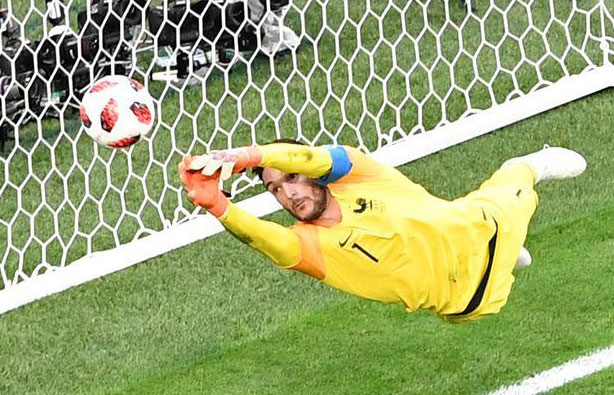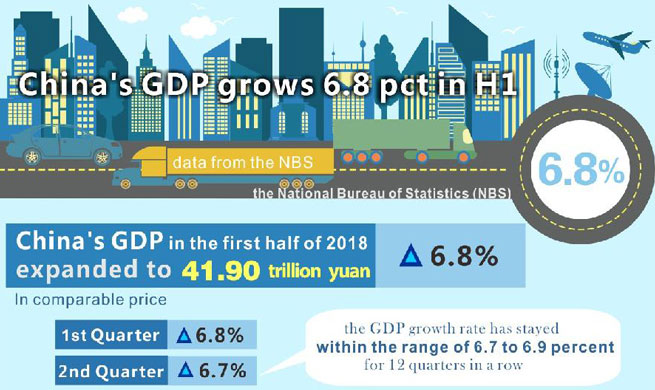UNITED NATIONS, July 16 (Xinhua) -- Marie Chatardova, president of the UN Economic and Social Council (ECOSOC), said Monday that progress is not going fast enough to realize the 2030 Sustainable Development Goals (SDGs).
"We all agreed that the time for action is now," she said at the high-level segment of the High-level Political Forum on Sustainable Development, stressing that "progress is not going fast enough to realize the goals by 2030."
Reviewing a number of challenges, she said that, while extreme poverty is a third of its 1990 value, 10.9 percent of the world's population live below the poverty line.
There are also more undernourished people today than in 2016. From last week's debates, it is evident that "major disparities in achievements exist," both within and between countries, with least developed countries, landlocked developing countries and small island developing states lagging in achieving almost all targets, and middle-income countries facing their own challenges, she said.
At the same time, however, "new ways of making policies are taking root in such areas as energy, cities, sustainable consumption and production and sustainable use of terrestrial ecosystems," Chatardova added.
Emphasizing the need to maintain the same level of energy in the 12 years ahead, she said heads of state and government should reaffirm their commitment to the 2030 Agenda on Sustainable Development next year when the forum meets under the auspices of the General Assembly.
"We must engage the whole of society in our efforts," she said, underscoring the importance of engaging major groups and stakeholders, including the business sector and leaders in the world of science, technology and innovation.
Much could be learned from the voluntary national reviews to be presented this week by 46 member states setting out how they are implementing the 2030 Agenda, she said.
A strong message from those reports is that the 2030 Agenda, while enjoying support at high levels of government, must be promoted in local contexts, alongside a strengthening of the institutional capacities of all key stakeholders, said the ECOSOC president.
Other challenges include strengthening the role of evidence-based statistics and policy making, stronger public institutions for mitigating climate change and disaster impact, and enhancing productive capacity to develop economic resilience, she noted.
A high-level segment of the forum on Thursday will include a discussion on long-term projections and scenarios on advancing sustainable development and leveraging new technologies for the goals, said Chatardova.
The forum, which would take stock of progress on the Sustainable Development Goals, and conclude on July 18, kicked off on June 9 at the UN headquarters in New York. More than 80 ministers and vice ministers, as well as 2,500 non-state actors, would be attending the 8-day forum.

















